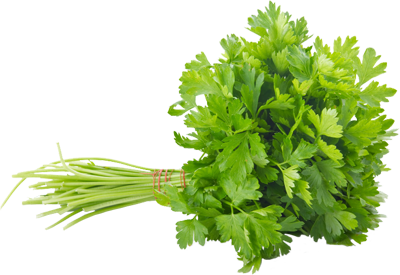- Parsley is an herb. The leaf, seed, and root are used to make medicine. Be careful not to confuse parsley with fool’s parsley and parsley piert.
Contents
Benefits
- Urinary tract infections (UTIs)
- Kidney stones (nephrolithiasis)
- Gastrointestinal (GI) disorders
- Constipation
- Jaundice
- Intestinal gas (flatulence)
- Indigestion
- Colic
- Diabetes
- Cough, asthma
- Fluid retention (edema)
- Osteoarthritis
- “tired blood” (anemia)
- High blood pressure
- Prostate conditions
- Spleen conditions.
- To start menstrual flow
- Cause an abortion
- Aphrodisiac
- Breath freshener.
Some people apply parsley directly to the skin for:
- Cracked or chapped skin
- Bruises
- Tumors
- Insect bites
- Lice
- Parasites
- To stimulate hair growth.
In foods and beverages: garnish, condiment, food, and flavoring.
In manufacturing: parsley seed oil is used as a fragrance in soaps, cosmetics, and perfumes.
Benefits
- Parsley might help stimulate the appetite, improve digestion, increase urine production, reduce spasms, and increase menstrual flow.
Cautions
- Pregnancy and breast-feeding: Parsley in food amounts is fine, but parsley in larger medicinal amounts is LIKELY UNSAFE when taken by mouth during pregnancy. Parsley has been used to cause an abortion and to start menstrual flow. In addition, developing evidence suggests that taking An-Tai-Yin, an herbal combination product containing parsley and dong quai, during the first three months of pregnancy increases the risk of serious birth defects. If you are pregnant, stick with using only the amount of parsley typically found in food. Not enough is known about the safety of using parsley in medicinal amounts during breast-feeding. It’s best not to use more than typical food amounts of parsley.
- Diabetes: Parsley might lower blood sugar levels. Watch for signs of low blood sugar (hypoglycemia) and monitor your blood sugar carefully if you have diabetes and use parsley.
- Fluid retention (edema): There is a concern that parsley might cause the body to hold onto sodium (salt), and this increases water retention.
- High blood pressure: There is a concern that parsley might cause the body to hold onto sodium (salt), and this could make high blood pressure worse.
- Kidney disease: Don’t take parsley if you have kidney disease. Parsley contains chemicals that can make kidney disease worse.
- Surgery: Parsley might lower blood glucose levels and could interfere with blood sugar control during and after surgical procedures. Stop using parsley at least 2 weeks before a scheduled surgery.
Other Names:
Apium crispum, Apium petroselinum, Carum petroselinum, Common Parsley, Garden Parsley, Graine de Persil, Hamburg Parsley, Huile de Persil, Parsley Fruit, Parsley Oil, Parsley Root, Parsley Seed, Perejil, Persely, Persil, Persil Cultivé, Persil Frisé, Persil de Naples, Persil Odorant, Persil Plat, Persin, Petersylinge, Petroselini Fructus, Petroselini Herba, Petrosilini Radix, Petroselinum crispum, Petroselinum hortense, Petroselinum sativum, Petroselinum vulgare, Prajmoda, Racine de Persil, Rock Parsley.
References
Source: WebMD, “parsley”, www.webmd.com/vitamins-supplements/

